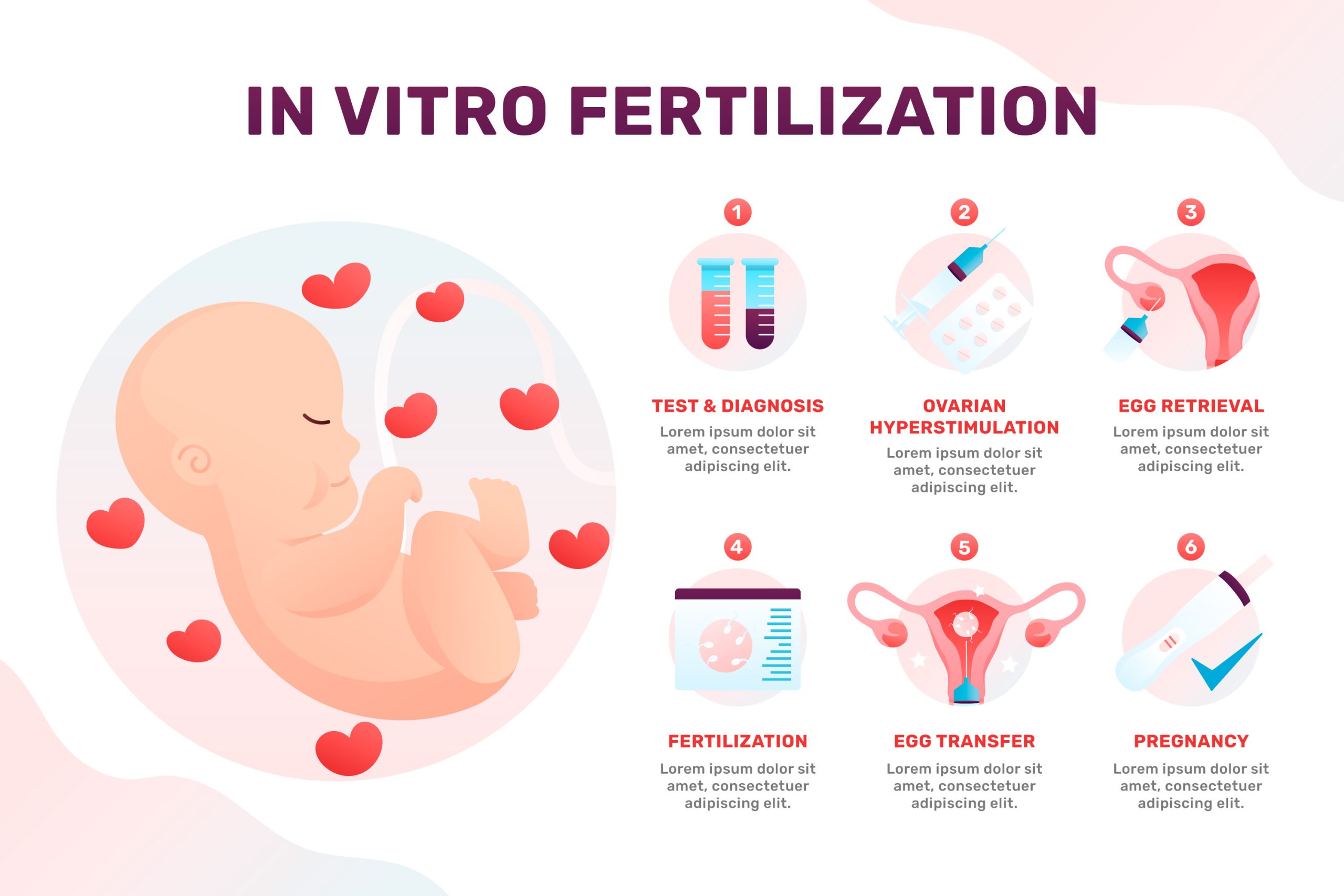Introduction
In vitro fertilization (IVF) has been a game-changer for couples struggling with infertility. But did you know there isn’t just one type of IVF? With advancements in reproductive technology, multiple approaches now cater to different fertility challenges. Understanding these options can help couples make informed decisions on their journey to parenthood.
Types of IVF Based on Fertilization Method
1. Conventional IVF
- Best suited for couples dealing with tubal damage, ovulation disorders, or unexplained infertility.
- Involves retrieving eggs after ovarian stimulation and fertilizing them in a lab using specialized culture media.
- Ideal for those with no severe male infertility issues.
2. Intracytoplasmic Sperm Injection (ICSI)
- A single sperm is directly injected into an egg to enhance fertilization chances.
- Designed for severe male infertility cases, such as low sperm count or motility issues.
- A great option for couples who have experienced failed fertilization in conventional IVF.
Types of IVF Based on Ovarian Stimulation
1. Mini IVF
- Uses lower doses of hormonal medication to stimulate the ovaries.
- Produces fewer eggs but focuses on quality over quantity.
- Ideal for women with low ovarian reserve who prefer a gentler approach.
2. Natural Cycle IVF
- Follows the woman’s natural ovulation cycle without hormonal stimulation.
- Retrieves a single egg, making it a minimally invasive option.
- Best for women sensitive to hormones or those seeking a more natural alternative.
Types of IVF Based on Embryo Transfer
1. Fresh Cycle IVF
- Embryos are transferred into the uterus immediately after fertilization.
- Recommended for couples undergoing their first IVF cycle.
2. Frozen Embryo Transfer (FET)
- Embryos are frozen and transferred in a future cycle.
- Helps patients requiring pre-treatment or those looking to avoid ovarian hyperstimulation.
3. Routine Single Embryo Transfer (rSET)
- Transfers a single embryo to reduce the risk of multiple pregnancies.
4. Double Embryo Transfer
- Two embryos are transferred to improve success rates, often recommended for women with repeated implantation failures.
Advanced Techniques in IVF
Modern advancements have increased IVF success rates and tailored treatments to individual needs.
1. Preimplantation Genetic Testing (PGT)
- Screens embryos for genetic abnormalities before transfer.
- Ideal for couples with a history of genetic disorders or recurrent miscarriages.
2. Laser-Assisted Hatching
- Uses laser technology to thin the embryo’s outer layer, aiding implantation.
- Particularly beneficial in frozen embryo transfers.
3. Endometrial Receptivity Array (ERA)
- Analyzes the endometrial lining to determine the best implantation window.
- Recommended for women with repeated implantation failures.
4. Ovarian Rejuvenation with PRP (Platelet-Rich Plasma)
- Injects PRP into the ovaries to boost ovarian function.
- A potential option for women with diminished ovarian reserve.
Comparing IVF Treatment Types
Each IVF method offers unique benefits suited to different fertility challenges.
| IVF Type | Key Features | Best For |
|---|---|---|
| Conventional IVF | Uses ovarian stimulation and lab fertilization | General infertility, tubal issues |
| ICSI | Direct sperm injection into the egg | Severe male infertility |
| Mini IVF | Low-dose hormonal stimulation | Low ovarian reserve, gentler approach |
| Natural Cycle IVF | Minimal or no hormonal stimulation | Hormone sensitivity, single egg retrieval |
| Fresh Cycle IVF | Immediate embryo transfer | Couples with no previous treatments |
| Frozen Embryo Transfer (FET) | Embryos frozen for later use | Flexibility, avoiding overstimulation |
| PGT | Genetic screening of embryos | Genetic disorders, recurrent miscarriages |
Who Should Consider Each Type of IVF?
- Conventional IVF: Ideal for couples with unexplained infertility or general fertility concerns.
- ICSI: Recommended for severe male infertility, such as low sperm motility or count.
- Mini IVF: Suitable for women with low ovarian reserve who prefer minimal hormone use.
- Natural Cycle IVF: Best for women with hormonal sensitivities or those seeking a natural approach.
- Frozen Embryo Transfer (FET): Great for couples needing flexibility or planning multiple cycles.
- Advanced Techniques: PGT is beneficial for genetic concerns, while ERA helps with implantation failures.
Conclusion
With so many IVF options available today, couples have more personalized pathways to parenthood than ever before. From conventional IVF to advanced genetic screening, each method is designed to address specific fertility challenges. Consulting with a fertility specialist ensures that you choose the best approach tailored to your needs.
IVF is no longer a one-size-fits-all solution—it’s a tailored journey. So, take that next step with confidence and explore the option that aligns with your fertility goals!

